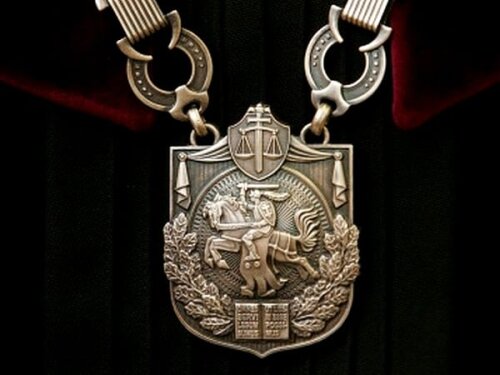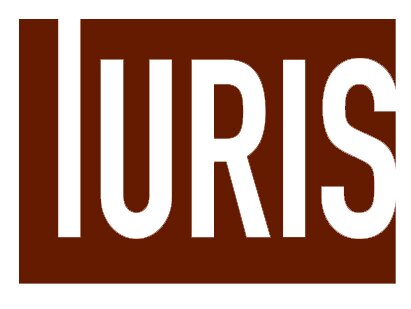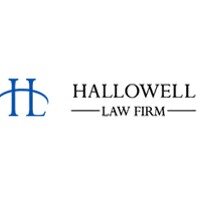Best Antitrust Litigation Lawyers in Vilnius
Share your needs with us, get contacted by law firms.
Free. Takes 2 min.
List of the best lawyers in Vilnius, Republic of Lithuania

About Antitrust Litigation Law in Vilnius, Republic of Lithuania
Antitrust litigation in Vilnius, Republic of Lithuania, involves legal processes that address violations of competition law, also known as antitrust law. These laws are designed to preserve fair competition, prevent the abuse of dominant market positions, and stop anti-competitive agreements or practices that restrict competition. The capital city, Vilnius, serves as the principal hub for legal matters relating to competition, given the presence of courts and governmental agencies responsible for handling such disputes. Antitrust litigation may involve proceedings before the national courts, the Competition Council, and, in some cases, referrals to European Union bodies if cross-border issues arise.
Why You May Need a Lawyer
Antitrust litigation is a complex area that often requires expert legal guidance. Individuals or companies may need a lawyer’s help if:
- They are accused of engaging in cartel agreements, price fixing, or market sharing.
- They are subject to investigations by the Lithuanian Competition Council.
- They wish to file a complaint about competitors engaging in unfair or restrictive practices.
- They seek compensation for losses suffered due to anti-competitive conduct.
- They face legal uncertainty regarding mergers and acquisitions and need guidance on compliance with antitrust regulations.
- They want to prepare or review business practices to ensure compliance with Lithuanian and European Union competition laws.
Attorneys specializing in antitrust litigation provide invaluable support by navigating the procedural requirements, developing defense strategies, negotiating with authorities, and representing clients in court.
Local Laws Overview
Lithuania’s legal framework for antitrust litigation is primarily governed by the Law on Competition of the Republic of Lithuania. This law establishes the principles for prohibiting agreements that restrict competition, controlling the abuse of dominant positions, and overseeing concentrations (mergers and acquisitions) that may significantly impede competition in the market. Key aspects include:
- The Lithuanian Competition Council is the main regulatory authority tasked with enforcing competition rules, investigating suspected infringements, and imposing sanctions.
- Civil damages claims can be filed by private parties harmed by anti-competitive conduct.
- The Law on Competition incorporates principles from European Union competition law, particularly relevant for cross-border or multinational cases.
- There are severe penalties for breaching competition law, including substantial fines and, in certain cases, criminal liability for individuals.
- Certain decisions of the Competition Council or courts can be appealed, allowing for judicial review and protection of rights.
Firms operating in Vilnius must be especially vigilant, as enforcement in the capital tends to be particularly robust due to the concentration of business activity and regulatory oversight.
Frequently Asked Questions
What is considered anti-competitive behavior in Vilnius, Republic of Lithuania?
Anti-competitive behavior includes practices such as price fixing, bid rigging, market sharing, abuse of a dominant position, and unlawful mergers that restrict or distort competition in the market.
Who enforces antitrust (competition) law in Lithuania?
The Lithuanian Competition Council is the main authority responsible for enforcing antitrust rules, conducting investigations, and imposing punishments for violations.
Can I file a private lawsuit for damages caused by anti-competitive conduct?
Yes. Private individuals or companies harmed by unlawful restrictive practices can file civil lawsuits to seek compensation for damages suffered.
Are Lithuanian antitrust laws aligned with European Union regulations?
Yes. Lithuanian competition law reflects the principles of European Union competition law, ensuring consistency especially in cases where both national and EU competition interests are affected.
What penalties can be imposed for breaching antitrust laws?
Penalties may include significant financial fines, directives to change business practices, invalidation of anti-competitive agreements, and, in certain circumstances, criminal liability for individuals.
What should I do if I am notified of an investigation by the Competition Council?
It is crucial to seek professional legal advice immediately. Do not attempt to destroy evidence or contact other involved parties without legal counsel.
Are all mergers and acquisitions subject to antitrust review?
Not all, but transactions that meet specified turnover thresholds or that may significantly affect competition in Lithuania require notification and approval from the Competition Council.
Is leniency available for parties who admit to anti-competitive practices?
Yes. The Lithuanian leniency program provides reduced penalties for parties that voluntarily report and cooperate with investigations into cartel activities.
How long do antitrust investigations typically take?
The duration varies depending on the complexity of the case, but investigations can take from several months to a few years. Timelines are influenced by the scope of evidence, number of parties involved, and need for cooperation with other EU authorities.
Can decisions of the Competition Council be appealed?
Yes. Decisions can be appealed to the Administrative Court of Lithuania, which provides judicial review of the findings and sanctions imposed by the Council.
Additional Resources
If you require more information or support regarding antitrust litigation in Vilnius, consider reaching out to the following:
- Lithuanian Competition Council - The primary authority for competition issues and enforcement.
- Lithuanian Bar Association - For referrals to qualified competition law attorneys.
- European Commission Directorate-General for Competition - For cases with a cross-border or EU law dimension.
- Vilnius Regional Administrative Court - For information on challenging decisions made by regulatory bodies.
- Non-governmental organizations such as Transparency International Lithuania - For guidance on compliance and best practices.
Next Steps
If you need legal assistance with an antitrust matter in Vilnius, the following steps are recommended:
- Gather all relevant documents and correspondence related to your issue, including contracts, emails, and notices.
- Identify whether you are under investigation or wish to raise a complaint, as this will affect your approach to legal representation.
- Contact a specialized antitrust or competition lawyer with experience in Lithuanian and EU law. The Lithuanian Bar Association can help with referrals.
- Request an initial consultation to discuss your situation, possible risks, and strategic options.
- Remain proactive but cautious in all communications and business decisions while your matter is under review.
By following these steps and seeking the right legal support, you can better protect your interests and ensure compliance with both local and European antitrust laws.
Lawzana helps you find the best lawyers and law firms in Vilnius through a curated and pre-screened list of qualified legal professionals. Our platform offers rankings and detailed profiles of attorneys and law firms, allowing you to compare based on practice areas, including Antitrust Litigation, experience, and client feedback.
Each profile includes a description of the firm's areas of practice, client reviews, team members and partners, year of establishment, spoken languages, office locations, contact information, social media presence, and any published articles or resources. Most firms on our platform speak English and are experienced in both local and international legal matters.
Get a quote from top-rated law firms in Vilnius, Republic of Lithuania — quickly, securely, and without unnecessary hassle.
Disclaimer:
The information provided on this page is for general informational purposes only and does not constitute legal advice. While we strive to ensure the accuracy and relevance of the content, legal information may change over time, and interpretations of the law can vary. You should always consult with a qualified legal professional for advice specific to your situation.
We disclaim all liability for actions taken or not taken based on the content of this page. If you believe any information is incorrect or outdated, please contact us, and we will review and update it where appropriate.














